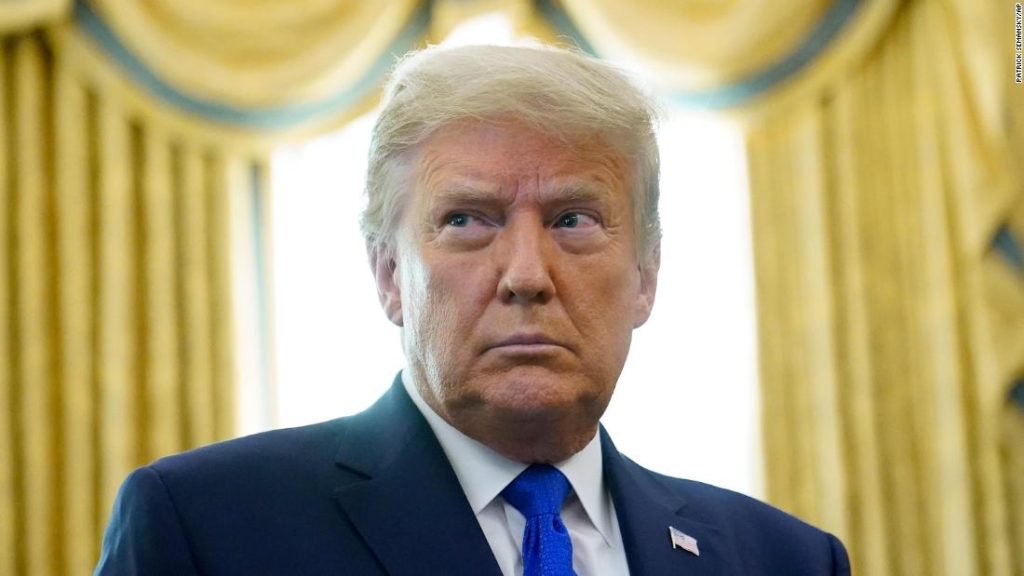The court’s order, issued with no public dissents, to dismiss the challenge is the strongest indication yet that Trump has no chance of overturning election results in court, and that even the justices whom he placed there have no interest in allowing his desperate legal bids to continue.
The Electoral College will convene Monday to affirm Biden’s win.
“From a legal perspective, the fat lady has sung,” said Steve Vladeck, a CNN Supreme Court analyst and University of Texas Law professor.
“The Supreme Court really let us down. No Wisdom, No Courage!,” Trump tweeted around midnight. Mike Gwin, a spokesman for Biden’s campaign, said the decision was “no surprise.”
Paxton, calling the court’s order “unfortunate,” vowed to fight on.
“I will continue to tirelessly defend the integrity and security of our elections and hold accountable those who shirk established election law for their own convenience,” he said in a statement.
Republican election lawyer Ben Ginsberg said Trump’s crusade to undermine the election’s results through rhetoric and court challenges “put a huge stress test on our democracy.”
“The Republicans who did follow Donald Trump really have an obligation now to make the country strong again, to heal the chinks that Donald Trump tried to put in the foundation of the country and the democracy,” Ginsberg told CNN’s Wolf Blitzer on “The Situation Room.”
Texas denied for lack of standing
The court’s order Friday night was unsigned, and court did not provide a vote count, but there were no dissents to the order made public.
In its short order, the court said that Texas had not demonstrated that it had the legal right to bring the suit because it had not demonstrated a “judicially cognizable interest in the manner in which another State conducts its elections.”
The order states: “The State of Texas’s motion for leave to file a bill of complaint is denied for lack of standing under Article III of the Constitution. Texas has not demonstrated a judicially cognizable interest in the manner in which another State conducts its elections. All other pending motions are dismissed as moot.”
In a statement accompanying the order, Justices Samuel Alito and Clarence Thomas said they would have allowed the case to be filed, but would grant no other relief.
“Even Justice Thomas and Alito, who might otherwise have been sympathetic to these challenges, went out of their way to express that they would grant no relief on the merits,” Vladeck said.
“Not only did the Court reject Texas’s effort to challenge the results in four battleground states, but it did so on a ground that will prevent any other states from doing so,” Vladeck added.
Another big loss for Trump
Presidential pressure
Hours ahead of the court’s decision, the President called on the Supreme Court to intervene in the election, but seemed to acknowledge that a Biden administration is on its way.
“Now that the Biden Administration will be a scandal plagued mess for years to come, it is much easier for the Supreme Court of the United States to follow the Constitution and do what everybody knows has to be done. They must show great Courage & Wisdom. Save the USA!!!” Trump tweeted Friday morning.
In addition, 126 House Republicans signed on to an amicus brief in support of Paxton’s motion, including Minority Leader Kevin McCarthy.
Still, several Republican lawmakers in Washington slammed the basis of the suit, citing federalism concerns and saying Texas shouldn’t have a say in how other states hold their elections.
This story has been updated with additional details, background information and reaction.
CNN’s Caroline Kelly contributed to this report.
You may also like
-
UK coronavirus variant has been reported in 86 countries, WHO says
-
NASA technology can help save whale sharks says Australian marine biologist and ECOCEAN founder, Brad Norman
-
California Twentynine Palms: Explosives are missing from the nation’s largest Marine Corps base and an investigation is underway
-
Trump unhappy with his impeachment attorney’s performance, sources say
-
Lunar New Year 2021: Ushering in the Year of the Ox

